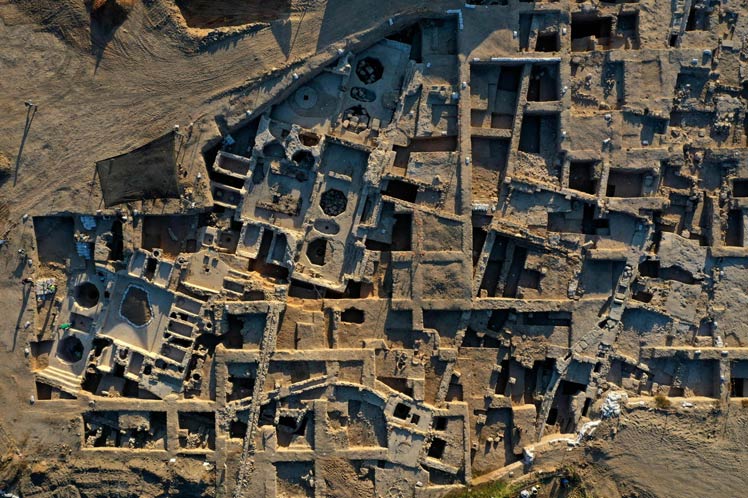The stone bas-reliefs show kings praying to the gods carved into the walls of a nearly nine-kilometer-long irrigation canal at Faida, in northern Syria.
The discovery was made by a joint team of archaeologists from the Department of Antiquities in Dohuk and colleagues from Italy.
The carvings are 12 panels measuring five meters wide by two meters high, and show gods, kings and sacred animals dating from the reigns of Sargon II (721-705 BC) and his son Sennacherib.
Iraq was the birthplace of some of the world’s earliest cities, home to Sumerians, Assyrians and Babylonians, and one of mankind’s first examples of writing.
It is also now a location for smugglers of ancient artifacts.
pgh/iff/acl/arc










